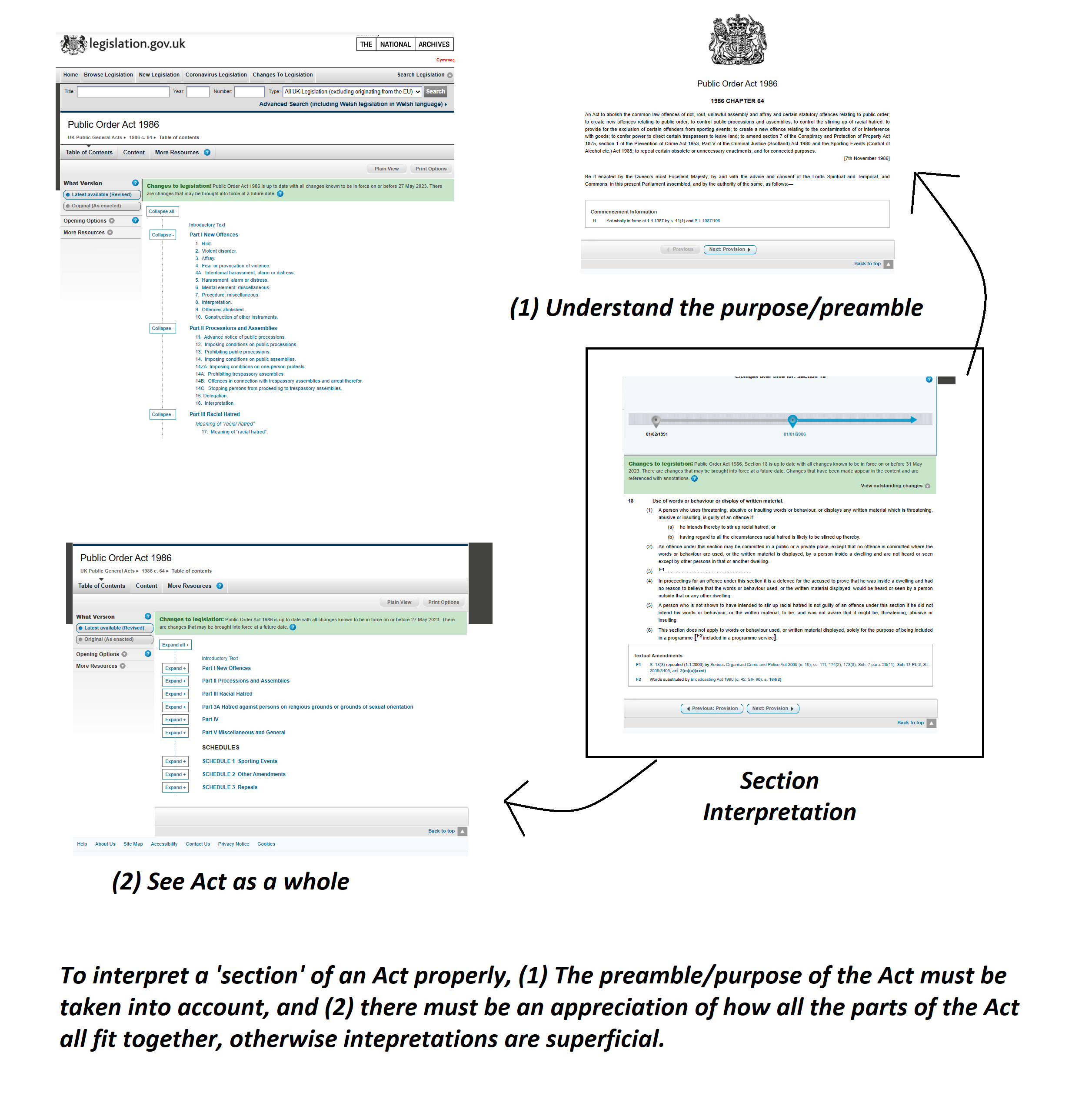Padfield v Minister of Agriculture, Fisheries and Food [1968] UKHL 1
Citation:Padfield v Minister of Agriculture, Fisheries and Food [1968] UKHL 1
Rule of thumb:When making an argument for breach of a Statute or Regulation to a Court or Tribunal, how should it be presented? When an Act of Parliament is being presented to the Court, the preamble, statutory outline, category of the Act, surrounding sections, and then finally the full section provided, so that the Judge can see the section in its full & proper context to be in a good position to understand it fully.
Rule of thumb:Does an Act giving a decision maker ‘discretion’ oust the Court? No, the Court can still review the method by which the decision was reached, and check it was not absurd, it just cannot re-review the merits of the decision.
Background facts:
The basic facts of this case were that Padfield argued that they were entitled to milk subsidies.
Parties argued:
Padfield argued that the Act regulating this stated that the Minister had to use discretion to decide the most deserving people for the subsidies, and they argued that they deserved as they were the most deserving. The Minister explained the consideration process and affirmed that they ultimately believed that there were more deserving candidates than Padfield.
Judgment:
The Court affirmed that the Minister had followed a proper investigation process to determine the best candidate. They further affirmed that the Minister had a reason for their decision which was based on a statutory point, reached in a methodical way, was not entirely unreasonable, did not breach any other laws, and fitted in with the general purpose of the Act. The Court therefore affirmed that these circumstances were not a breach of a section requiring discretion to be used, so Padfield did not get the subsidies they were seeking. The Court did affirm that a decision maker being given discretion with a section did not oust the Court – it only ensured that they had to follow a good decision making process and could not make decisions which were entirely unreasonable, but still did give them a lot of power & subjectivity to decide. In short, discretionary statutory section give a decision maker a lot of power but not the right to be a unmethodical & unprofessional law unto themselves.

Warning: This is not professional legal advice. This is not professional legal education advice. Please obtain professional guidance before embarking on any legal course of action. This is just an interpretation of a Judgment by persons of legal insight & varying levels of legal specialism, experience & expertise. Please read the Judgment yourself and form your own interpretation of it with professional assistance.

